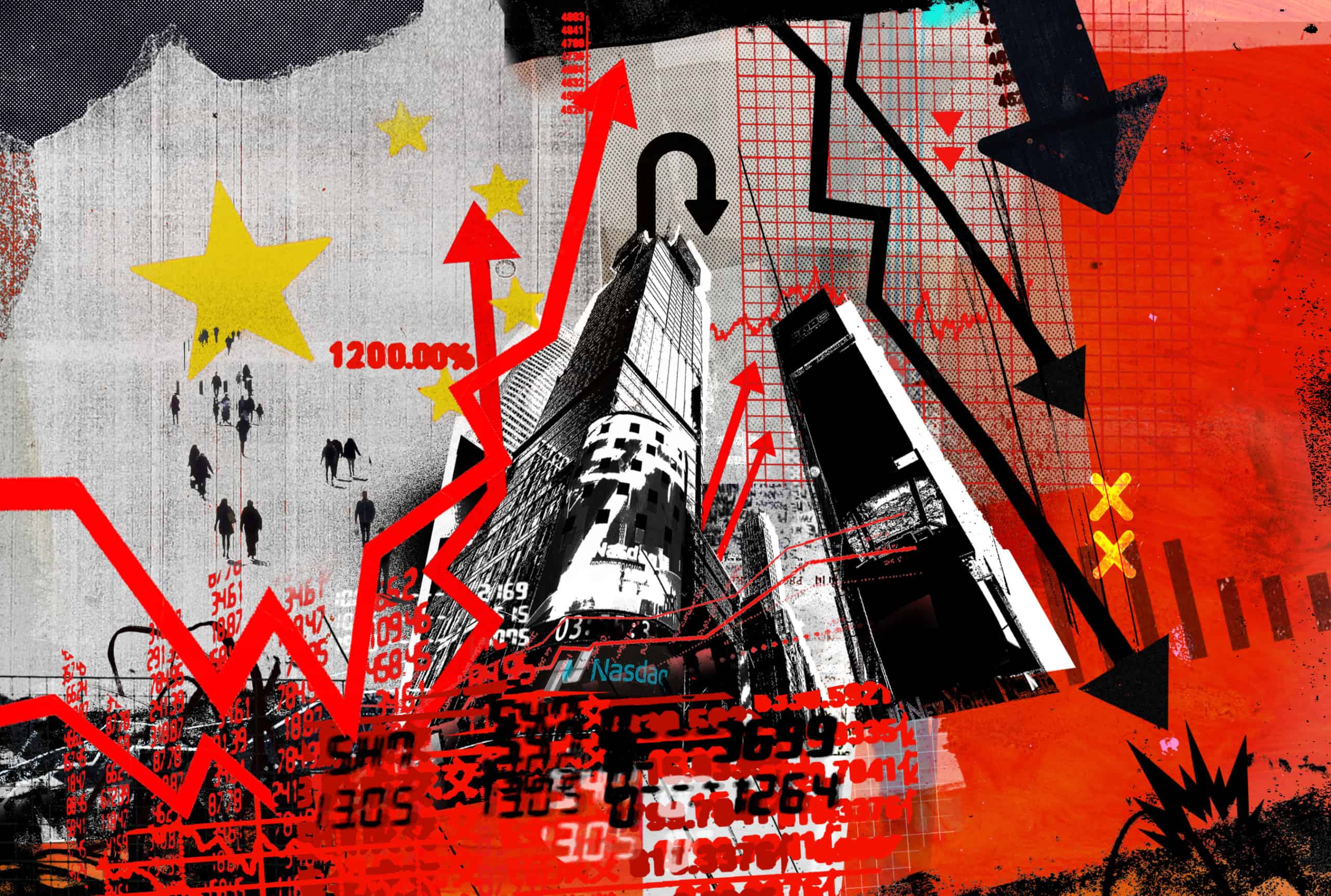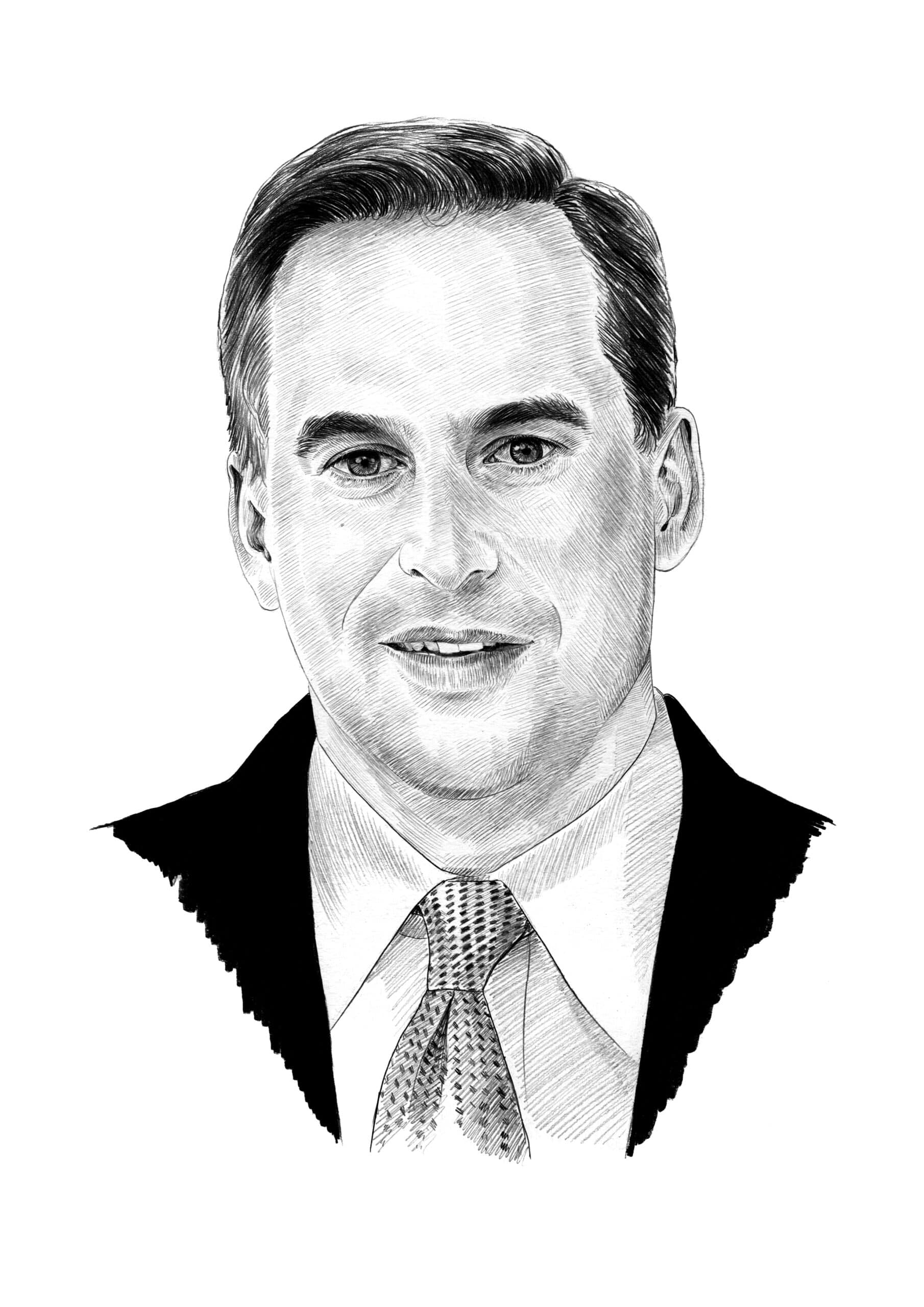
Earlier this summer, a small Chinese company based in the seaside city of Xiamen went public on the Nasdaq Stock Market. It immediately turned into a sensation. The stock price for Pop Culture Group soared 1,200 percent in two days — from $6 a share to $78 a share — helping the company raise $37.2 million dollars.
Pop Culture Group’s allure, while not anticipated, is a common one for investors: a Chinese company with a niche concept promising to take its massive domestic market by storm. In the prospectus, for instance, the company marketed itself as having “a deep understanding of the younger generation, [and] a highly-recognized brand name in the hip-hop culture and street dance industries.”

Pop Culture Group hosts promotional hip-hop themed events in China. If a new store is opening in a shopping mall, the company sets up a stage with laser lights, loud music, and hip hop dancers to attract interest in the new business. The company also hosts dance competitions, music festivals, and events at karaoke bars and amusement parks. Its mission, it says, is “to promote hip-hop culture and its values of love, peace, unity, respect, and having fun, and to promote cultural exchange with respect to hip-hop between the United States and China.”
After it went public, Elliott Zaphkiel, a college student in Idaho who day trades in his spare time, started noticing a lot of chatter about the company on social media. The stock had already reached its incredible high and begun to drop, but online, Zaphkiel says, “A lot of people were pumping it.” Believing the hype, Zaphkiel says he bought $77,000 worth of the stock at $10 a share.
But as the stock continued to tumble, Zaphkiel got out, selling at $8.30, and then looked on as Pop Culture Group’s bubble continued to pop. In recent weeks, it bottomed out at around $3.70 a share, which is about where it sits today. The company, which reached a peak valuation of more than $1.9 billion just days after the IPO, is now valued at close to $90 million.
Such intense volatility is not unusual in the small cap corner of the stock market. Companies with less than $2 billion in market capitalization typically have fewer shares on offer, which means even a relatively small trading volume can have a major impact on the stock price. Plus, the recent phenomenon of “meme stocks” — or stock surges driven by internet chatter among retail investors who have little regard for companies’ financials — has fueled similar boom and bust performances. Douglas P. Menelly, a U.S.-based board member of Pop Culture Group, describes what happened to the company as “an analogous situation” to AMC and GameStop, two U.S. companies that surged in stock price earlier this year thanks to discussions on popular internet forums like Reddit.
“These companies became prime targets for speculative investors,” he says.
But while the recent roller coaster rides of AMC and GameStop were fueled by social media hype and nostalgia for the brands, observers say Pop Culture Group’s stock price gyrations felt fundamentally different. For starters, the company had just 34 employees as of last year, and little brand recognition, even in China. According to its prospectus, Pop Culture Group’s events attracted more than 122,000 people in the fiscal year ending in June 2019 — before the Covid-19 pandemic forced the company to transition partly to online events.
Some U.S. investors say that the lead underwriter — or the company responsible for setting the IPO price, selling the initial shares, and ensuring all regulatory requirements are met — may hold clues to Pop Culture Group’s wild performance. The 14-year-old company was brought to market by Network 1 Financial Securities, a small investment bank based in New Jersey that has developed a reputation for taking Chinese companies public in the U.S. with boomerang trajectories.
In the past year, two other Chinese companies taken public by Network 1 have traded much like Pop Culture Group. Tian Ruixiang Holdings, an insurance broker, surged by more than 2,400 percent in the month after its IPO before its shares nosedived. And Sentage Holdings, a financial services provider, skyrocketed 940 percent the day after its IPO, only to tank less than two weeks later.

This unusual pattern, industry analysts say, raises questions about whether the stocks of these U.S.-listed Chinese firms are being manipulated. A Pop Culture Group spokesperson told The Wire that the company does not comment “on market speculations and fluctuations,” but that the executives value “the Company’s own business development rather than short-term stock price fluctuations.”
The wild stock movements have also cast suspicion on the underwriters of the Chinese listings. Gillem Tulloch, the founder of Hong Kong-based GMT Research, an accounting research firm focused on Asia, says that for underwriters like Network 1, “The best case scenario is that they are willfully ignorant.”
Executives at Network 1 beg to differ. From his office in a building complex with a fondue chain and a pilates studio in Red Bank, New Jersey, Damon D. Testaverde, Network 1’s chairman, seems unperturbed by the insinuation. Similar surge patterns happen all the time with U.S. IPOs, he says, and it was the offbeat and even hopeful nature of Pop Culture Group that attracted Network 1 to the deal.
“I thought, ‘Isn’t it interesting and fun to invest in hip hop in China?’ The youth love it there,” he says. “JPMorgan is not going to do that type of deal. But it is a big business. And it spreads the culture. People don’t kill each other and have wars if you know the culture.”
Testaverde’s allusion to U.S.-China tensions is interesting, considering one of the biggest flashpoints in the economic relationship is the long running dispute over the listing of Chinese companies on U.S. exchanges. From last year’s Luckin Coffee scandal to the collapse of Didi’s blockbuster $4.4 billion IPO this summer, U.S. regulators have vowed to scrutinize and possibly even ban Chinese listings from American exchanges.1Beijing is now placing its own restrictions on overseas listings. And yet while these fiascos have dominated front pages recently, obscure Chinese companies continue to list shares in the United States.

“The larger IPOs are so well covered by the industry,” says Dan David, the founder of Wolfpack Research, a short selling firm based in New York. “The smaller caps are more hidden. With these smaller ones, if they find a way to manipulate trading, they are going to get away with it.”
Paul Gillis, a professor at Peking University’s Guanghua School of Management in Beijing, says it is not unlike the reverse merger boom of the late 2000s, when scores of little-known Chinese firms acquired assets in the U.S. to secure a so-called “back door listing,” allowing the Chinese firms to avoid the normal regulatory approvals and stock listing procedures.2See the acclaimed 2018 documentary, “China Hustle.” “The smaller Chinese companies have been prone to fraud,” he says. “They are brought to market when they really aren’t ready. The management might not be committed to the responsibilities of a public company.”
And when that happens, short sellers like David are ready to pounce. For them, the boom-and-bust cycle of stocks like Pop Culture Group presents an economic opportunity, a way to profit by selling “short,” or betting that the price of a stock will drop. The Wire reached out to several China-focused short sellers, and all of them said that Network 1 has been known to underwrite firms that do not have solid financials. (The company has strongly disputed that contention.) For that reason, short sellers tend to watch what companies Network 1 takes public and then, after a sharp price run up, position themselves to profit on a stock collapse. In fact, David says that his firm doesn’t even bother shorting Network 1’s companies because too many other short sellers already do.
“Network 1 comes out with something and [short selling] firms are just on it,” David says. “They traffic in low quality names.”
Still, even as Network 1 has attracted the interest of short sellers, its focus on small Chinese companies has been a dependable part of its business. Though the firm declined to say how much it earns on an IPO, underwriters collect a fee — typically between 3.5 and 7 percent of the gross IPO proceeds, according to PwC data. And from January to April of this year, Chinese companies raised about $6.6 billion by going public in the U.S., a figure that exceeds by eight times the same period in 2020. Even during a moment of heightened regulatory scrutiny — and uncertainty — surrounding Chinese listings in the U.S., Testaverde’s confidence in Network 1’s China strategy is telling.
“It is good for the world to have these companies listed here,” he says. “The challenges right now are just a matter of appetite. Do investors still have an appetite? So far, yes.”
JUDGEMENT CALL
Testaverde, whose firm was founded in 1983, says that Network 1 pivoted towards the Chinese market earlier than many other firms of its size. In 2010, Testaverde hired an analyst from another New Jersey based firm, a Chinese national named Steven (Jian) Sun who had recently graduated from Rutgers Business School.
“This was when the small and midsize Chinese companies were just starting to want to go public in the U.S.,” says Testaverde. He and Sun made a plan for how they would approach the rapidly expanding market. They started with a few private placements, and Testaverde traveled with Sun to meet with accountants and visit Chinese firms that could potentially list in the United States.
“The nuts and bolts,” he says, “is just like taking a company from Long Island public. The difference is cultural and language.”
Testaverde credits Sun, who is now managing director at Network 1, with bringing in the Pop Culture Group deal. (Sun could not be reached for comment.)
Network 1 says it has several other U.S.-based Mandarin speakers and that — before the pandemic — they regularly traveled to China. Today, half of the firm’s IPOs are Chinese companies, according to Testaverde. In fact, the China business is so significant for the firm that Network 1 owns a website domain that it uses to promote its role backing Chinese listings in the U.S.: www.publicchinesecompanies.com.

While Network 1 doesn’t have an office in China, Testaverde says it sources most of its deals through referrals, from law and accounting firms to seminars it organizes in China. “It is a big country, but this small cap world is pretty small,” he says. “So once you build a reputation, it gets much easier.”
Indeed, Network 1 is part of an ecosystem of firms that specialize in Chinese overseas listings. For example, U.S.-based Hunter Taubman Fischer & Li LLC served as the legal counsel on the deals for Pop Culture Group, Sentage Holdings and Tian Ruixiang Holdings. Friedman LLP, which is based in New York City, was the auditing firm on two of those deals. Partners at the two firms each declined The Wire’s request for comment.
But some analysts say the insular nature of the small cap world makes it easier for inside dealing to occur. “You have these firms, and they have a value chain of go-to market research companies, go-to lawyers, go-to auditors that facilitate these companies coming over to the U.S.,” says Michael Norris, a research and strategy manager at AgencyChina, in Shanghai.
If U.S.-based underwriters, lawyers and auditors knowingly support a company in committing fraud or stock manipulation, they could be held legally responsible. But experts say it is exceptionally difficult to prove — partly because so much of the deal relies on the advisors’ judgment and access to internal Chinese corporate documents. For example, in the case of Pop Culture Group, three quarters of the company’s total assets — $15 million in June 2020 — were accounts receivable, or assets that had not yet been collected, up from $10 million the year before, according to the prospectus. Many underwriters might consider this an indication that its financials could be exaggerated. The company reported sales of $15.7 million in the fiscal year ending in June 2020, which means that more than 90 percent of its revenue had not yet been collected. While none of these facts are damning by themselves, taken together, they may have dissuaded other firms from endorsing the company’s listing in the first place.

But the financial incentive for a company like Network 1 to sign off anyways is significant.
Noting the wild ride that some small cap Chinese companies take after listing shares in the U.S., a growing number of short sellers are scrutinizing not just the high flying stocks but the advisors who bring those Chinese stocks to market.
“There is a niche in the market for crooked auditors, PR firms, and underwriters,” says Anne Stevenson-Yang, the co-founder of J Capital Research, a China-focused short selling firm. “In some ways, I wish I had done that. You [can] make a lot of money.”
Testaverde maintains the Pop Culture Group phenomenon was naturally occurring. “At the beginning, we had tremendous interest from Chinese investors,” he says. “After the initial turn on, the interest goes down. It happens with U.S. IPOs too.”
Roger Silvers, an assistant professor at the University of Utah and former senior economist at the U.S. Securities and Exchange Commission (SEC), agrees that there are more routine reasons for price spikes, like underpricing the initial IPO. But, he adds, “When you see a systematic pattern like Network 1’s series of Chinese IPOs, it is troublesome. I would guarantee that somebody at the SEC is looking at that.”
RIPE FOR MANIPULATION
For the SEC, the story of a no-name investment bank facilitating a steady stream of eccentric Chinese listings with often irregular trading patterns is a familiar one. During the reverse merger boom of the late 2000s, instead of going through the usual IPO process, a flood of Chinese companies went public through the back door by merging with small American companies that were already listed. Eventually, after a series of fabulous flops caught the attention of short sellers and regulators, many of these firms were found to have fudged their financials and ended up being delisted.
This time, if what the short sellers allege is true, Chinese companies are going straight through the front door.
“It is useful for Chinese companies to access U.S. markets,” says James Peterson, a lawyer who focuses on the accounting profession’s legal and regulatory issues. “Back when reverse mergers were the flavor of the month, the SEC was caught flat footed. They were late to the enforcement game.” Now, even a decade later, Peterson says, “Chinese financial reporting is essentially a black hole.”
Most infamously, Luckin Coffee, which was billed as the Starbucks of China, reached a $12 billion valuation last year after a Nasdaq IPO. Then, last April, after an 89-page short seller report claimed that much of its revenue was blatantly fake, the stock tumbled and the company was delisted, in one of the most spectacular crashes for a Chinese listing on Nasdaq.
You have these firms, and they have a value chain of go-to market research companies, go-to lawyers, go-to auditors that facilitate these companies coming over to the U.S.
Michael Norris, a research and strategy manager at AgencyChina
Of course, stock market frauds are hardly uncommon, and they involve firms from all over the world. But analysts say the influx of Chinese firms listing in the U.S. is especially ripe for manipulation. For one, there is the geographic distance, now exacerbated by Covid-19 restrictions, making research inside China much more difficult. Also, a lack of cooperation from Chinese regulators means that SEC investigations are stopped in their tracks.
“When I was at the SEC, once an investigation landed on China’s door, I always thought, that’s it, it’s done,” says Silvers, the former SEC economist. “Even if they know this irregular activity is triggered by some fraudulent behavior, the SEC still has to have something to allege against the firm. They need some evidentiary basis, and with the Chinese companies that’s a big ask.” The SEC did not respond to requests for comment.
Luckin and other Chinese companies are able to get away with relatively brazen fraud schemes largely because of an auditing irregularity. In the wake of the Enron scandal in 2001, in which the Texas-based energy giant committed serial accounting fraud, U.S. lawmakers passed legislation to create a regulator tasked with overseeing all auditing firms. It is called the Public Company Accounting Oversight Board (PCAOB), and in the years after its creation, the PCAOB brokered deals with other countries, so that they could inspect the work of auditors working abroad when foreign companies went public in the United States. China, however, was the only major country that refused to comply, and to this day, China does not allow the PCAOB to conduct investigations within its borders.
“China has always said auditing is sensitive, and it may be a national security issue,” says Peterson, who has written books on the auditing industry. “There are agreements in almost every other country.3About 25 in all. But the Chinese, to be non-euphemistic about it, have been jerking the U.S. around for years now.”
Chinese laws and regulations actively prohibit both Chinese and U.S. auditors of China-based companies from giving U.S. regulators access to their papers. The rules are so strict that even U.S. accounting firms that have large offices in China are behind it.
“If the PCAOB wants to inspect EY’s work on Apple in China,” Peterson says, “they start in San Jose, and EY says, ‘That is fine, but we can’t give you anything from our network’s member firm in China.’ And then the PCAOB jumps up and down like Rumpelstiltskin.”
The auditors in China could be doing a fine job, of course, but at the end of the day, the U.S. has no ability to verify that, making it easier, experts say, for companies to get away with fudging the numbers.
If the PCAOB wants to inspect EY’s work on Apple in China… they start in San Jose, and EY says, ‘That is fine, but we can’t give you anything from our network’s member firm in China.’ And then the PCAOB jumps up and down like Rumpelstiltskin.
James Peterson, a lawyer who focuses on the accounting profession’s legal and regulatory issues
This has rankled American politicians and regulators for a long time, but now, with political tensions high between the U.S. and China, it has become a flashpoint. Last year, the U.S. passed the Holding Foreign Companies Accountable Act, which both requires companies to disclose if they are owned or controlled by a foreign government and promises to delist foreign companies that haven’t complied with the PCAOB in three years. There is no precedent for this type of massive delisting, and it is unclear how it would play out. But many worry that the retail investors who hold Chinese stocks would be the big losers, as stock prices would plummet before delisting. The company itself, of course, could then just re-list on a Chinese exchange.
But even if the PCAOB brokered an agreement with China, other problems with the system would persist.
“I am an accounting professor, so this isn’t something I should be caught saying, but the auditing is the tip of the iceberg,” says Silvers, the former SEC economist. “I don’t want to trivialize the PCAOB getting their auditors in, but there are many other things. For example, China is rife with insider trading. When you have cross border trade, by the time FINRA is aware that there is something happening, it is too late. The money is gone.”
Nasdaq has the power to delist firms suspected of stock manipulation, but experts say this has been rare in the Chinese small cap world.
“Nasdaq has a narrow set of boxes to check. Are the papers in order? Have they filled out the boxes correctly?” says Stevenson-Yang, the short seller. “Nasdaq is like the auditing firms, the PR firms, and the investment banks. They have a small sphere of responsibility.” Nasdaq declined to comment for this article.
Tulloch, of GMT Research, says the only real way to stop the manipulation in the small cap market is to go after the firms that facilitate it. “If you want to stop this, you have to go to the source, you have to start penalizing the advisors,” says Tulloch. “In particular, the banks; they are the ones who are claiming to do due diligence.”
To date, penalties for these firms are extremely rare. Many point to the case of Benjamin Wey, the founder of New York Global Group, who made a fortune during the reverse merger boom, as one of the only cases that resulted in prosecution. He was indicted for fraud — specifically taking stakes in companies before manipulating the stock to his favor — and then eventually exonerated because the FBI botched its collection of evidence.
Testaverde, for his part, doesn’t seem worried. In July, Gary Gensler, the SEC chairman, said that foreign companies listed in the U.S. will need to disclose the risk of government crackdown as well as their particular offshore corporate structure, called the Variable Interest Entity (VIE). As a result, a few of Network 1’s IPOs are currently on pause, but Testaverde says he supports the new regulatory guidelines and is confident that new Chinese issuers will keep knocking on his door.
“The listings — both big and small — are going to continue,” he says. “There is nothing like the New York Stock Exchange and Nasdaq. When all the regulations are settled, I will get back to doing business.”
Indeed, despite the cautionary tales, the allure of investing in China remains. “The whole point of investing in China is investing in new growth, investing in a fabulous future,” says Stevenson-Yang. Other countries don’t have “such a promise of massive upside. There is that growth story with China.”
Except, that is, for the retail investors, like Elliott Zaphkiel, who have already been burned by Chinese companies like Pop Culture Group.
“I don’t think I would bet on Chinese stock ever again,” Zaphkiel says. “It’s not worth it.”

Katrina Northrop is a journalist based in New York. Her work has been published in The New York Times, The Atlantic, The Providence Journal, and SupChina. @NorthropKatrina



